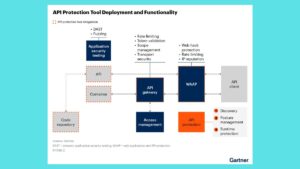HRTech & HR Software Marketing: Driving Growth in the Digital Age

The Human Resources Technology (HRTech) and HR software industries have witnessed significant growth over the past few years. As companies increasingly rely on digital tools to manage talent, optimize workflows, and engage employees, HRTech providers face a competitive market. To succeed, they must not only build cutting-edge solutions but also implement effective marketing strategies that resonate with HR professionals and decision-makers.
In this blog, we will explore the unique challenges and opportunities in marketing HRTech and HR software, discuss best practices, and look at emerging trends that are shaping the future of the HRTech marketing landscape.
The HRTech Market Landscape
The global HRTech market, valued at over $30 billion in 2023, is projected to grow rapidly in the coming years. Organizations across industries are investing in HR software solutions that improve talent management, employee engagement, payroll, and compliance processes. This rapid growth has led to a crowded marketplace, with major players like Workday, BambooHR, SAP SuccessFactors, and Oracle HCM competing alongside emerging startups.
The diversity of offerings—ranging from recruitment software and employee benefits management to AI-powered people analytics—makes marketing in this space challenging. HRTech marketers need to differentiate their solutions while addressing the evolving needs of HR professionals.
Key Challenges in HRTech Marketing
1. Complex Buyer Journey
The decision-making process for HR software can be lengthy and complex. HR leaders, IT departments, and C-level executives often need to align before a purchasing decision is made. HRTech marketers must engage multiple stakeholders across various channels, ensuring that their message resonates with each audience.
2. Differentiation in a Competitive Market
With hundreds of HRTech solutions on the market, it’s challenging to stand out. Many platforms offer similar core functionalities, such as performance management, recruitment, and payroll automation. To differentiate, HRTech marketers must focus on highlighting unique value propositions, such as ease of use, superior customer support, or advanced analytics capabilities.
3. Technical Messaging vs. Value-Driven Content
While HR professionals care about features like automation, cloud-based infrastructure, and integration capabilities, they are equally concerned with outcomes—such as improving employee engagement, reducing turnover, and enhancing workforce productivity. Finding the right balance between technical messaging and value-driven content is crucial to appealing to both IT specialists and HR leaders.
Best Practices for Marketing HRTech and HR Software
1. Develop Persona-Driven Campaigns
Successful HRTech marketing starts with a deep understanding of your audience. HR professionals come from diverse backgrounds and have different priorities depending on their role—whether they are recruiters, HR managers, or heads of compensation and benefits.
Develop detailed buyer personas for your target audience. Identify their pain points, key motivators, and preferred channels for content consumption. For example, recruiters may be more interested in applicant tracking system (ATS) features, while HR managers might prioritize performance evaluation tools.
2. Create Educational and Value-Driven Content
Content marketing plays a critical role in establishing thought leadership and building trust. By providing valuable insights through blogs, webinars, whitepapers, and eBooks, HRTech companies can position themselves as experts in the field and offer solutions to common HR challenges.
Focus on content that educates your audience on topics such as:
- Workforce trends: Share insights on hybrid work models, diversity and inclusion, employee well-being, and more.
- Technology innovations: Explain how AI, machine learning, and automation are transforming HR processes.
- Case studies: Highlight success stories that demonstrate how your HR software has improved efficiency, employee satisfaction, or compliance for clients.
3. Leverage Social Proof and Testimonials
HR professionals value peer recommendations and trust industry benchmarks. Featuring client testimonials, case studies, and user-generated content (UGC) in your marketing efforts helps build credibility. Reviews on trusted platforms such as G2 Crowd and Capterra can also boost your reputation and attract new leads.
Consider collaborating with well-known companies or industry influencers to showcase how they have successfully implemented your HR software, reinforcing its real-world value.
4. Optimize for SEO and Thought Leadership
In the competitive HRTech space, ranking high on search engines is essential to visibility. HR professionals often research software solutions online before making purchasing decisions. An SEO-driven strategy that targets relevant keywords—such as “HR software,” “employee engagement tools,” or “HR analytics”—can drive organic traffic to your website.
Additionally, thought leadership in the form of long-form content, industry reports, and expert opinions can help your brand stand out as a trusted authority in the HRTech industry. Partner with industry experts for co-branded content or speaking engagements at major HR conferences.
5. Utilize Multi-Channel Marketing
The HRTech audience is highly active across various digital platforms. Your marketing strategy should leverage multiple channels to reach your target customers where they are most engaged:
- Social Media Marketing: Platforms like LinkedIn, Twitter, and YouTube are ideal for sharing educational content, company updates, and customer success stories.
- Email Marketing: Nurture leads through personalized email campaigns that offer helpful resources and showcase the benefits of your software.
- Pay-Per-Click (PPC) Advertising: Use targeted ads on Google and social media platforms to increase brand awareness and generate leads.
- Influencer Marketing: Partner with HR industry influencers to expand your reach and gain credibility within the community.
6. Offer Free Trials and Demos
HRTech buyers often want to test a product before committing to a purchase. Offering free trials, personalized demos, or interactive product tours allows potential customers to experience the benefits of your solution firsthand. A well-executed free trial or demo can shorten the sales cycle and build stronger engagement with prospects.
Emerging Trends in HRTech Marketing
1. Personalization and AI-Powered Targeting
As marketing technologies evolve, HRTech companies can leverage AI and machine learning to deliver personalized marketing experiences. By analyzing user behavior and preferences, AI-powered platforms can help tailor content, product recommendations, and messaging to individual prospects, leading to more effective engagement.
2. Interactive Content
Interactive content—such as quizzes, ROI calculators, and interactive infographics—can engage prospects and help them better understand how your HR software meets their needs. This type of content allows users to actively participate, making it more memorable and persuasive.
3. Video Marketing
Video is increasingly becoming a preferred content format for HR professionals. Whether it’s product demos, client testimonials, or thought leadership discussions, video content is more engaging and accessible. HRTech marketers should invest in creating high-quality video content for use across websites, social media, and email campaigns.
4. Focus on Data-Driven Marketing
HRTech companies should harness data-driven marketing strategies to optimize their campaigns. By using analytics tools, marketers can track user behavior, identify high-performing content, and adjust their strategies accordingly to improve ROI. Data insights help refine audience targeting, content personalization, and lead nurturing efforts.
Conclusion
The HRTech and HR software markets are expanding rapidly, offering immense opportunities for innovation and growth. However, succeeding in this competitive space requires a robust marketing strategy that resonates with HR professionals, decision-makers, and C-level executives.
By focusing on value-driven content, leveraging multiple marketing channels, and staying ahead of emerging trends, HRTech marketers can effectively communicate their unique offerings and build lasting relationships with potential clients. In a digital-first world, companies that master HRTech marketing will drive business growth, improve brand visibility, and secure a strong foothold in the evolving HR landscape.






